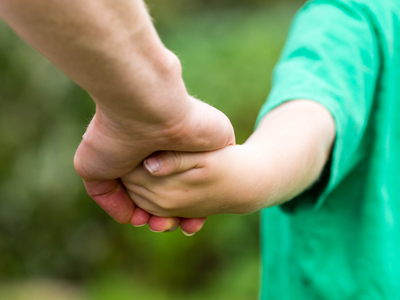
The government’s reforms to how social workers assess special guardianship arrangements will come into force at the end of February.
The new regulations follow a government announcement on the reforms at the end of 2015 and are designed to strengthen the assessments for prospective special guardians. Social workers must now focus on assessing the potential guardian’s current and past relationship with the child, and assess their parenting capacity.
This would include assessing the guardian’s “understanding of, and ability to meet the child’s current and likely future needs, particularly any needs the child may have arising from harm that the child has suffered.”
Care until 18
A special guardian’s ability to understand and protect the child from any harm posed by the child’s parents or relatives, and their suitability to bring up the child until the child reaches 18, must also be assessed under the new regulations.
Concerns have grown over the use of special guardianship orders in recent years. Their numbers have risen by more than 190% since 2010, and their role in permanency decisions has come under increased scrutiny since the 2013 Re B-S judgment was seen to have ‘raised the bar’ in terms of placing a child for adoption.
A Community Care investigation last year found one in four special guardianship orders in 2014 had a supervision order attached. The threshold for a supervision order is if a child is viewed to be at risk of significant harm.
In a note attached to the regulations, children’s minister Edward Timpson called the new measures “more detailed” and said the government did not expect a large impact on the private, voluntary and public sectors as a result of these changes.


 Bournemouth, Christchurch and Poole
Bournemouth, Christchurch and Poole  Hampshire County Council
Hampshire County Council  Lincolnshire County Council
Lincolnshire County Council  Norfolk County Council
Norfolk County Council  Northamptonshire Children’s Trust
Northamptonshire Children’s Trust  South Gloucestershire Council
South Gloucestershire Council  Wiltshire Council
Wiltshire Council  Wokingham Borough Council
Wokingham Borough Council  Children and young people with SEND are ‘valued and prioritised’ in Wiltshire, find inspectors
Children and young people with SEND are ‘valued and prioritised’ in Wiltshire, find inspectors  How specialist refugee teams benefit young people and social workers
How specialist refugee teams benefit young people and social workers  Podcast: returning to social work after becoming a first-time parent
Podcast: returning to social work after becoming a first-time parent  Podcast: would you work for an inadequate-rated service?
Podcast: would you work for an inadequate-rated service?  Family help: one local authority’s experience of the model
Family help: one local authority’s experience of the model  Workforce Insights – showcasing a selection of the sector’s top recruiters
Workforce Insights – showcasing a selection of the sector’s top recruiters 

 Facebook
Facebook X
X LinkedIn
LinkedIn Instagram
Instagram
Comments are closed.